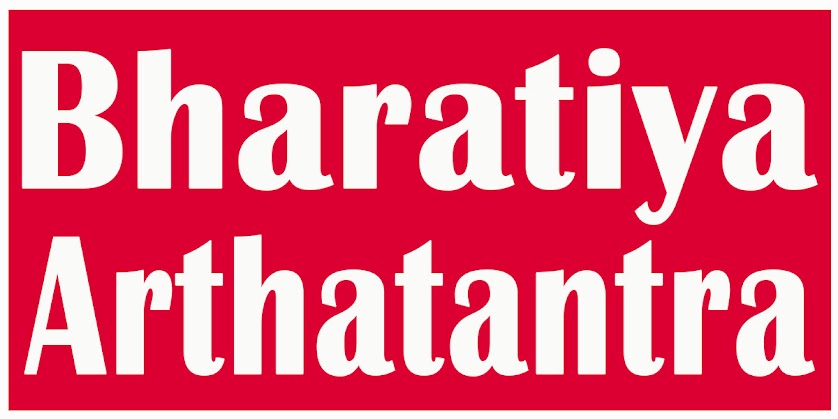Folk Tradition and Local Economy
Looking at
India, we may see differences in the sections of the society, but India is
culturally one from the beginning. India's cultural uniformity is what has kept
India as India from the beginning to the present. In this variation of India,
we get to see the philosophy of uniformity in villages and towns also. In
India, Lord Shri Ram is a symbol of the unity of the whole of India, in the
same way, the work of aggregating the villages and towns of India regionally
has been done by the local folk deity and local folk culture and tradition.
There have
been some special talented people in every region of India. Due to the
achievements achieved in his life and the works of charity done by him, he was
considered as a deity at the local level and with time he started worshiping.
One such folk deity who is worshiped even today by going beyond the territorial
limits. Those who believe and worship him are still respecting and worshiping
him in the same way as they used to do years ago. There is a folk deity in him,
'Baba Ramdev' or say 'Ramdevra Ji Maharaj'. Baba Ramdev ji was born in the
Pokhran tehsil of Jaisalmer in the state of Rajasthan. The fame of Ramdevra ji
Maharaj is world famous. Ramdevraji Maharaj is worshiped even within Malwa.
Similarly,
Gogadev Ji Maharaj in Malwa has a special name in the folk tradition. Gogadev
Ji Maharaj is also worshiped in the form of Lokdevta. Gogadev Ji Maharaj was
also born in the state of Rajasthan. Gogadev Ji Maharaj was born in Bhadra
Tehsil of Hanumangarh. Gogadev ji was one of the main disciples of Maharaj
Gorakshanath ji. Apart from these, Raja Tejaji Maharaj of Kharnal is also
worshiped as a folk deity. Tejaji Maharaj is worshiped in Malwa of Rajasthan
and Madhya Pradesh.
Similarly
Tantya Mama who was a revolutionary and fought a long war against the British.
For his valor, valor, justice, the local people worship him as a folk deity. At
present, we all take inspiration from the life of Tantya Mama. Apart from
these, Bhima Nayak was also a revolutionary who fought hard against the British
and he is also worshiped by the local people as a folk deity. Bhima Nayak was
born in Barwani near Indore. In India, all the folk deities are worshiped
equally by all classes.
Along
with folk deities, folk traditions also have special importance. Some folk
traditions have been created for the worship of folk deities, while some folk
traditions have started for the purpose of organizing the society and guiding
the society. From songs to poems and plays to paintings, everything is part of
folk traditions.
The local
economy has also been strengthened through folk traditions and festivals. Haat
markets and fairs set up to prepare for any folk festival and to celebrate
those festivals give impetus to the local economy. In the rainy season, when
the inland barter exchange is suspended due to rain, the local economy plays an
important role in the circulation of local currency, and folk traditions and
folk festivals strengthen the exchange as well. The market for local goods
becomes faster and there is continuity in the movement of currency.
In
order to pay respect to the folk deities and to show their loyalty to them,
various types of programs are organized by all the sections, the preparation of
which is done at the local level itself. Similarly, folk festivals and fairs
held on them also keep the local economy running. Whether it is the Chhatri
Yatra of Goga Maharaj or the Chhatri Yatra of Tejaji Maharaj or the annual
journey of Ramdevra ji, it is the time period of all the journeys and on the
completion of the journey many programs like fairs, Shobha Yatra etc. are
organized. Which also provides employment to the local people.
Mahakaleshwar
Jyotirling of Ujjain in Shravamas also has its specialty on a local basis. On
every Monday of Shrava month and on all Mondays up to the new moon day of
Krishna Paksha of Bhadrapada, the palanquin of Baba Mahakal goes out for a city
tour in the form of a ride. All the local and outsiders are eager to see it.
The foreign visitors who come here also spend their money and the local people
also do all the shopping etc. The ride festival of Mahakaleshwar Jyotirlinga is
also a local festival. Along with this, 84 Mahadev Yatra in Ujjain region and
Shashtha Ganapati Yatra in Ganeshotsav also promote local employment. Apart
from this, flower festival is also organized on the Ekadashi date of Shukla
Paksha of Bhadrapada at the time of Ganeshotsav in Ujjain and Indore in Malwa
region itself. Under which tableaux and akharas etc. are included and
procession is taken out to see which the people of the city gather, due to
which there is a fair-like atmosphere in the market.
The festival tradition in India is culturally homogeneous as well as
employment oriented. The economy also works very fast at the time of festivals
in India. Along with the festival tradition, local festivals are also used for
the strength of the local economy.



.jpg)



0 Comments
Post a Comment